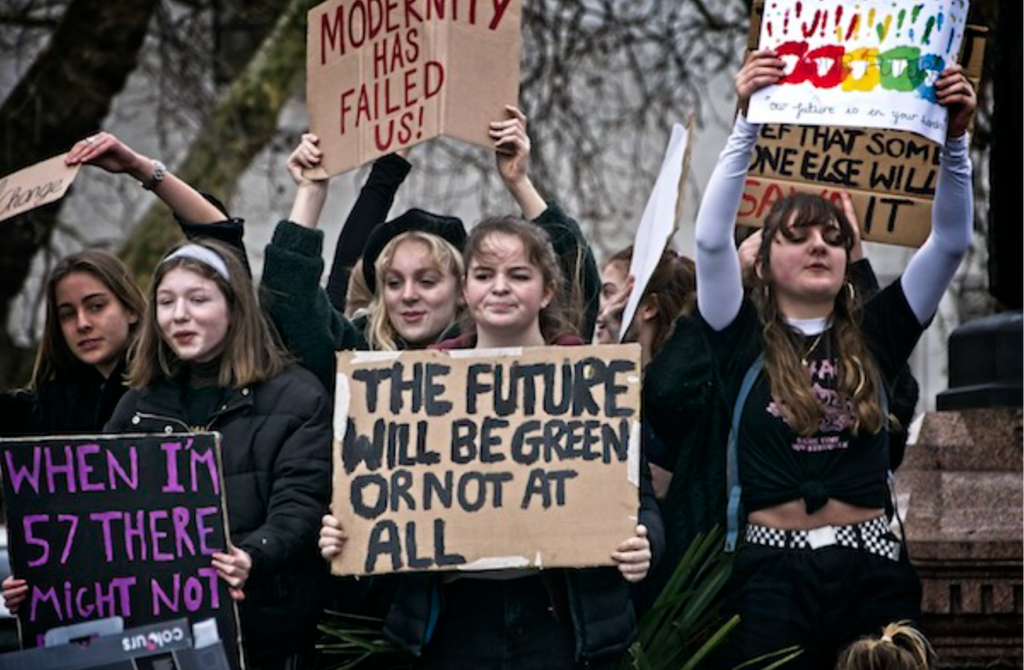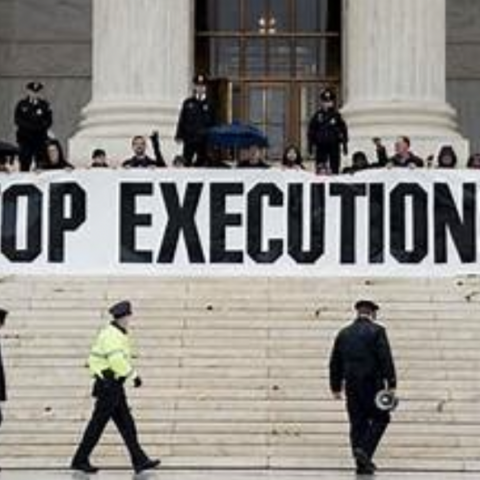By Julia Hartman

Young people have consistently voted at lower turnouts. For instance, in the 2016 election, only 48% of college students voted at the polls. This rate was notably lower than the national average of 61%
However, historically, college students have been at the forefront of many important political and social movements. The famous lunch counter sit-ins to protest against racial segregation that spread across the U.S. in the 1960s began with four young college students in North Carolina. Across the world after the fall of the Berlin Wall in 1989, college students in Czechoslovakia helped lead massive protests that led to the end of the state’s communist government and the election of a new president. Furthermore, during the 1960s, U.S. college students made up a large portion of protestors against the Vietnam War, and demonstrations occurred on campuses throughout the entire nation.
Gen Z, born in the late 1990s and early 2000s, is no exception to the trend of college students engaging in political and social activism. Many in this generation seem more passionate than ever regarding climate change, economic inequality, political division, and more. In fact, 70% of Gen Z is involved in some sort of political or social cause, and they are the age group most likely to boycott products, companies, countries, and states.
As the younger generation increasingly distrusts the formal political system, which may help to explain their low voting turnout, they have turned towards alternative methods of engaging in the democratic process like protests, boycotts, and petitions. Those methods are nothing new–but many of these means of engaging in social justice now heavily involve and rely upon social media. Platforms like Twitter, TikTok, and Instagram are commonly used to organize various protests, and these digital platforms are used to generate momentum for worldwide protests, such as the Black Lives Matter movement.
As a BBC article about Gen Z and social activism explains, “And although they are far from the first generation who’ve spoken up about injustice… technology has meant Gen Z’s activism looks different than the movements of the past – which means their influence may be, too.” Gen Z is constantly exposed to social crises and issues through social media sites, which has instilled a sense of anxiety and urgency in the generation. The same article states that because “young people can’t turn away from the discourse …it’s no wonder that many digital native Gen Zers are spurred to act on their societal grievances.” This desire to make an impact is seen on UGA’s campus through various political student organizations, such as the Young Democrats of UGA and the College Republicans at UGA.
Interviews with the heads of both student organizations showcased their perspectives on the best ways to engage in political activism. Yasmine Sabere, the President of Young Democrats of UGA, described how her organization hosts a multitude of speakers, engages in community service, educates members about Athens issues, guides students on voter registration, and posts statements on major political issues, such as the overturning of Roe v. Wade. On a personal level, Sabere protested for Palestine in Athens and even spoke at a demonstration. Sabere believes that these on-campus protests created an affirming space on campus for Muslim, Arab, and Palestinian students who did not feel that the UGA administration was acknowledging their grief. Sabere believes that the negative and repressive responses to pro-Palestine protests, especially by the older generation, are signs that the activism is indeed sparking a change. She believes that the “suppression around our voices” affirms that the protests are making a difference, even if the impact is not immediate.
Luke Winkler, the Chairman of College Republicans at UGA, also shared some insight on the activism of this student organization. He explained that the group mainly focuses on bringing in guest speakers, such as politicians Mike Collins and Andrew Clyde. Winkler believes that students who attend these events become more educated on political issues and have the opportunity to engage in civil discourse. Regarding protests on college campuses, he stated, “I personally don’t see…how effective [protesting] is,” although he emphasized that everyone has a right to do so.
In discussing the use of social media with political activism, Winkler and Sabere had differing views. Winkler stated that “it can be helpful…but people rarely engage in civil discourse and good conversation on social media” while Sabere believes that “social media is an incredible tool for social activism.” However, she acknowledged how performative activism can arise “when people don’t know a lot about the cause and are reposting something for their own personal benefit.”
One second-year student at UGA, Zeid Amer, is very passionate about social activism on social media. Amer continuously advocates for Palestine on Instagram and hopes that he may inspire others to do the same. However, he also acknowledges the potential problem of performative activism, explaining that people “must make sure that Palestine is not forgotten in a world where social issues are trends and forgotten the very next day.”
College students, on both sides of the political spectrum, are continuing the political activism work that past generations have begun. Both Winkler and Sabere agree that UGA has many opportunities to become involved in political and social activism, and that simply seeking out opportunities and organizations is an excellent way to begin.
Photo Credit: https://lavocedinewyork.com/en/lifestyles/2024/04/15/younger-generations-speak-out-on-climate-change-action-now/

